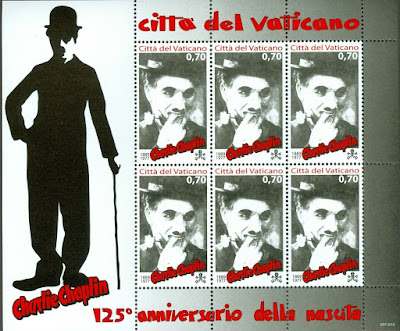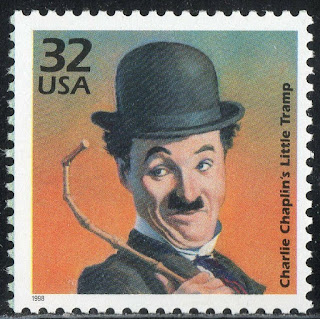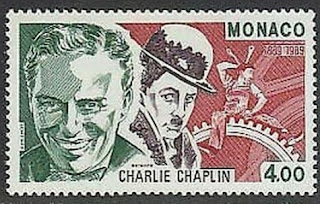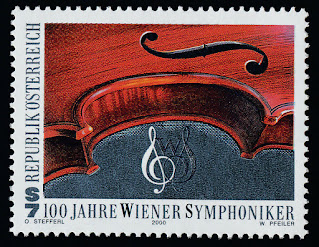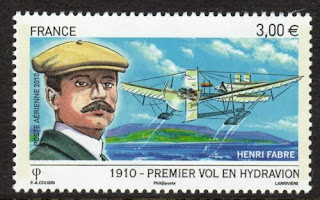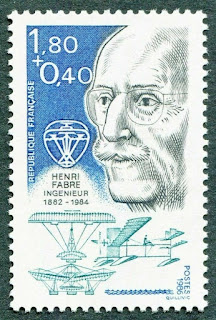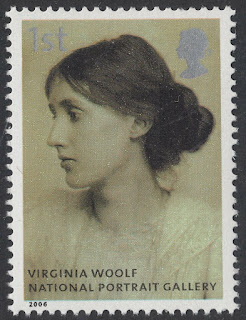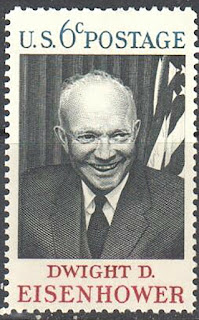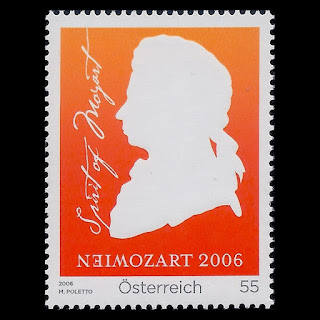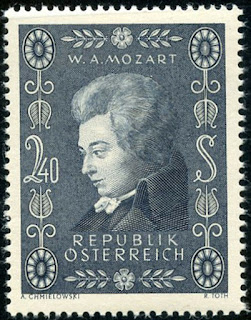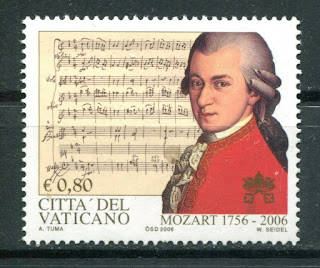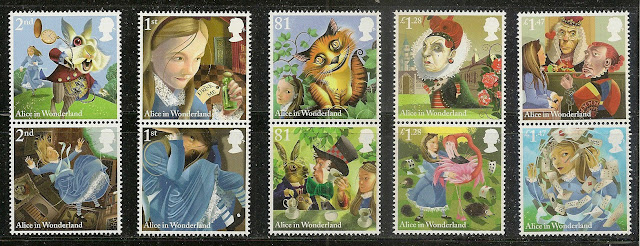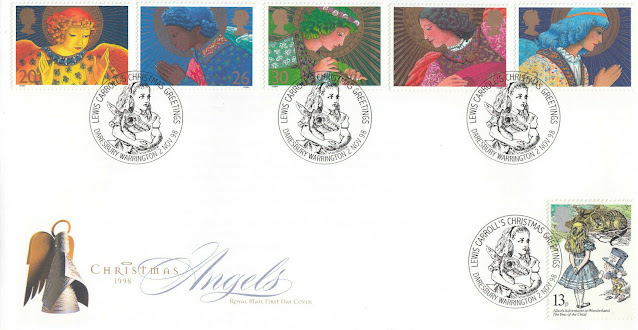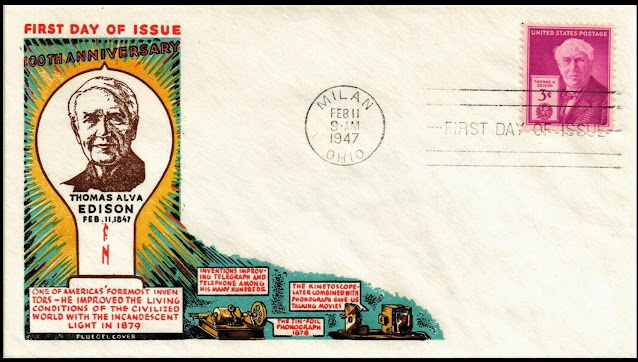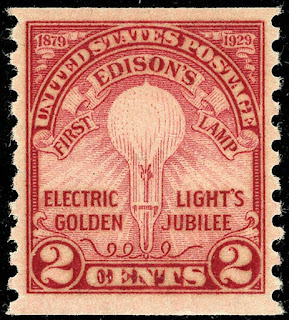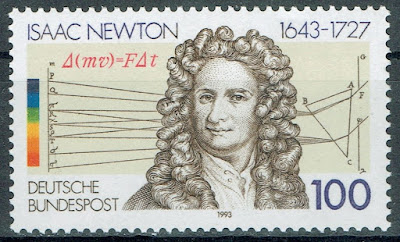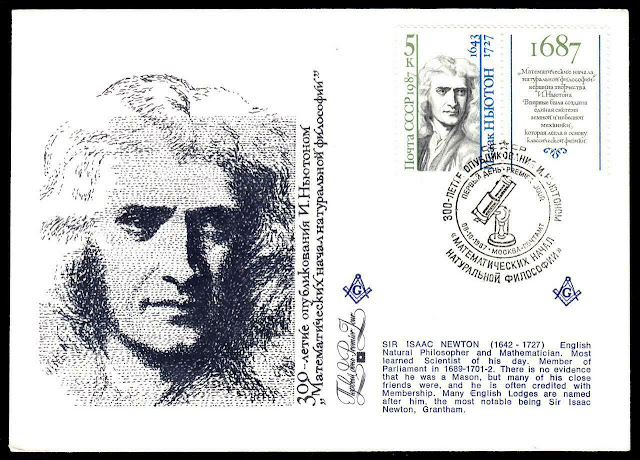Here are some events that happened on March 28th. It could be an event or a person that died or was born on that day
1483 Born: Raphael, Italian painter and architect (d. 1520)
Raffaello Sanzio da Urbino (March 28 or April 6, 1483 – April 6, 1520), known as Raphael, was an Italian painter and architect of the High Renaissance. His work is admired for its clarity of form, ease of composition, and visual achievement of the Neoplatonic ideal of human grandeur. Together with Michelangelo and Leonardo da Vinci, he forms the traditional trinity of great masters of that period.
Raphael was enormously productive, running an unusually large workshop and, despite his early death at 37, leaving a large body of work. Many of his works are found in the Vatican Palace, where the frescoed Raphael Rooms were the central, and the largest, work of his career. The best known work is The School of Athens in the Vatican Stanza della Segnatura. After his early years in Rome, much of his work was executed by his workshop from his drawings, with considerable loss of quality. He was extremely influential in his lifetime, though outside Rome his work was mostly known from his collaborative printmaking.
After his death, the influence of his great rival Michelangelo was more widespread until the 18th and 19th centuries, when Raphael's more serene and harmonious qualities were again regarded as the highest models. His career falls naturally into three phases and three styles, first described by Giorgio Vasari: his early years in Umbria, then a period of about four years (1504–1508) absorbing the artistic traditions of Florence, followed by his last hectic and triumphant twelve years in Rome, working for two Popes and their close associates.
Stamps from Italy and the Vatican depicting Raphael's work


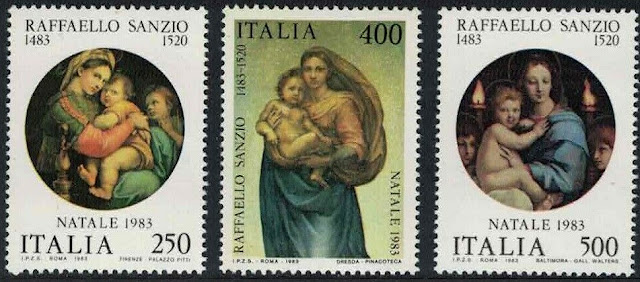
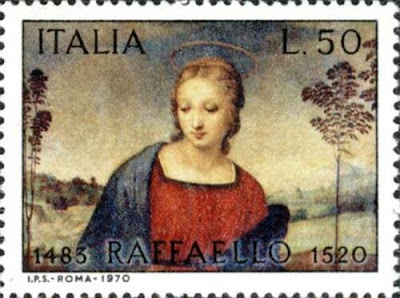
1599 Born: Witte de With, Dutch captain (d. 1658)
Witte Corneliszoon de With (28 March 1599 – 8 November 1658) was a Dutch naval officer. He is noted for planning and participating in a number of naval battles during the Eighty Years War and the First Anglo-Dutch war.
In the Eighty Years' War against the Spanish, De With fought at the Battle of the Downs (1639). De With became very jealous of Tromp's popularity after his destruction of the Spanish fleet in The Downs. In the same battle, he made an enemy of Zealandic Vice-Admiral Johan Evertsen and accused him of cowardice and avarice.
Witte de With on stamps issued by the Netherlands and Sint Maarten
1842 – First concert of the Vienna Philharmonic Orchestra, conducted by Otto Nicolai.
The Vienna Philharmonic (VPO; German: Wiener Philharmoniker), founded in 1842, is an orchestra considered to be one of the finest in the world.
The Vienna Philharmonic is based at the Musikverein in Vienna, Austria. Its members are selected from the orchestra of the Vienna State Opera. Selection involves a lengthy process, with each musician demonstrating their capability for a minimum of three years' performance for the opera and ballet. After this probationary period, the musician may request an application for a position in the orchestra from the Vienna Philharmonic's board.
Stamps from Austria issued to commemorate the Vienna Philharmonic
1910 – Henri Fabre becomes the first person to fly a seaplane, the Fabre Hydravion, after taking off from a water runway near Martigues, France.
Henri Fabre (29 November 1882 – 30 June 1984) was a French aviator and the inventor of the first successful seaplane, the Fabre Hydravion.
Henri Fabre was born into a prominent family of shipowners in the city of Marseille. He was educated in the Jesuit College of Marseilles where he undertook advanced studies in sciences.
He intensively studied aeroplane and propeller designs. He patented a system of flotation devices which he used when he succeeded in taking off from the surface of the Etang de Berre on 28 March 1910. On that day, he completed four consecutive flights, the longest about 600 metres. the Hydravion has survived and is displayed in the Musée de l'Air in Paris. Henri Fabre was soon contacted by Glenn Curtiss and Gabriel Voisin who used his invention to develop their own seaplanes.
As late as 1971, Fabre he was still sailing his own boat single-handedly in Marseille harbour.
He died at the age of 101 as one of the last living pioneers of human flight.
French stamps depicting Henri Fabre
1939 – Spanish Civil War: Generalissimo Francisco Franco conquers Madrid after a three-year siege.
Francisco Franco Bahamonde(4 December 1892 – 20 November 1975) was a Spanish general and politician who ruled over Spain as Head of State and dictator under the title Caudillo from 1939, after the Nationalist victory in the Spanish Civil War, until his death in 1975. This period in Spanish history is commonly known as Francoist Spain or the Francoist dictatorship.
On 1 October 1936, in Burgos, Franco was publicly proclaimed as Generalísimo of the National army and Jefe del Estado (Head of State). When Mola was killed in another air accident a year later (which some believe was an assassination) (2 June 1937), no military leader was left from those who organized the conspiracy against the Republic between 1933 and 1935
Franco remains a controversial figure in Spanish history, but it is worth noting that the nature of his dictatorship changed over time. His reign was marked by both brutal repression, with thousands killed, and economic prosperity, which greatly improved the quality of life in Spain. Franco's dictatorial style proved very adaptable, which could introduce social and economic reform, and the only consistent points in Franco's long rule were above all authoritarianism, Spanish nationalism, national Catholicism, anti-Freemasonry, and anti-communism.

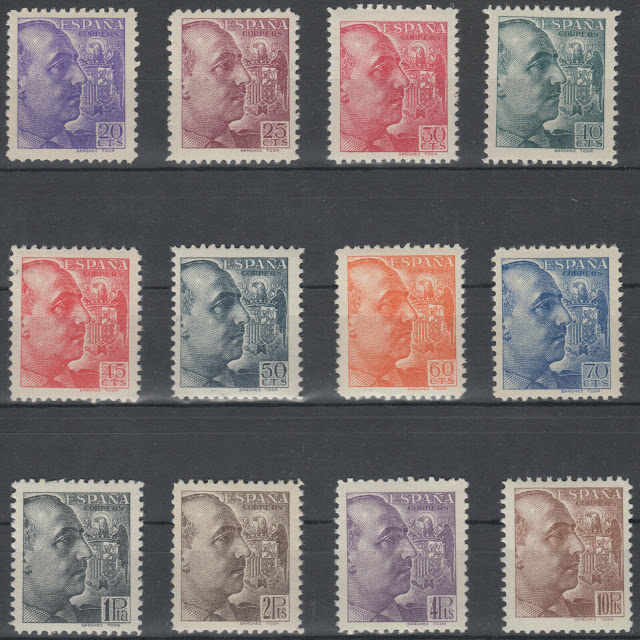

1941 Died: Virginia Woolf, English novelist, essayist, short story writer, and critic (b. 1882)
Adeline Virginia Woolf (25 January 1882 – 28 March 1941) was an English writer, considered one of the more important modernist 20th century authors and also a pioneer in the use of stream of consciousness as a narrative device.
Woolf was born into an affluent household in South Kensington, London, the seventh child in a blended family of eight which included the modernist painter Vanessa Bell. Her mother was Julia Prinsep Jackson and her father Leslie Stephen. While the boys in the family received college educations, the girls were home-schooled in English classics and Victorian literature. An important influence in Virginia Woolf's early life was the summer home the family used in St Ives, Cornwall, where, in the late 1890s, she first saw the Godrevy Lighthouse, which was to become central to her novel To the Lighthouse (1927).
Woolf's childhood came to an abrupt end in 1895 with the death of her mother and her first mental breakdown, followed two years later by the death of her half-sister and a mother figure to her, Stella Duckworth. From 1897 to 1901, she attended the Ladies' Department of King's College London, where she studied classics and history and came into contact with early reformers of women's higher education and the women's rights movement. Other important influences were her Cambridge-educated brothers and unfettered access to her father's vast library.
Encouraged by her father, Woolf began writing professionally in 1900. Her father's death in 1904 caused Woolf to have another mental breakdown. Following his death, the Stephen family moved from Kensington to the more bohemian Bloomsbury, where they adopted a free-spirited lifestyle. It was in Bloomsbury where, in conjunction with the brothers' intellectual friends, they formed the artistic and literary Bloomsbury Group.
In 1912, she married Leonard Woolf, and in 1917 the couple founded the Hogarth Press, which published much of her work. They rented a home in Sussex and moved there permanently in 1940. Throughout her life, Woolf was troubled by her mental illness. She was institutionalised several times and attempted suicide at least twice. Her illness may have been bipolar disorder, for which there was no effective intervention during her lifetime. In 1941, at age 59, Woolf died by drowning herself in the River Ouse at Lewes.
During the interwar period, Woolf was an important part of London's literary and artistic society. In 1915 she published her first novel, The Voyage Out, through her half-brother's publishing house, Gerald Duckworth and Company. Her best-known works include the novels Mrs Dalloway (1925), To the Lighthouse (1927), and Orlando (1928). She is also known for her essays, including A Room of One's Own (1929), in which she wrote the much-quoted dictum, "A woman must have money and a room of her own if she is to write fiction."
Woolf became one of the central subjects of the 1970s movement of feminist criticism and her works have since garnered much attention and widespread commentary for "inspiring feminism". Her works have been translated into more than 50 languages. A large body of literature is dedicated to her life and work, and she has been the subject of plays, novels, and films. Woolf is commemorated today by statues, societies dedicated to her work and a building at the University of London.
Stamp from Great Britain depicting Virginia Woolf
1969 Died: Dwight D. Eisenhower, American general and politician, 34th President of the United States (b. 1890)
Dwight David "Ike" Eisenhower (October 14, 1890 – March 28, 1969), was an American army general who served as the 34th president of the United States from 1953 to 1961. During World War II, he became a five-star general in the Army and served as Supreme Commander of the Allied Expeditionary Force in Europe. He was responsible for planning and supervising the invasion of North Africa in Operation Torch in 1942–43 and the successful invasion of Normandy in 1944–45 from the Western Front.
Eisenhower was born David Dwight Eisenhower, and raised in Abilene, Kansas, in a large family of mostly Pennsylvania Dutch ancestry. His family had a strong religious background. His mother became a Jehovah's Witness. Eisenhower, however, did not belong to any organized church until 1952. He graduated from West Point in 1915 and later married Mamie Doud, with whom he had two sons. During World War I, he was denied a request to serve in Europe and instead commanded a unit that trained tank crews. Following the war, he served under various generals and was promoted to the rank of brigadier general in 1941. After the United States entered World War II, Eisenhower oversaw the invasions of North Africa and Sicily before supervising the invasions of France and Germany. After the war, he served as Army Chief of Staff (1945–1948), as president of Columbia University (1948–1953) and as the first Supreme Commander of NATO (1951–1952).
In 1952, Eisenhower entered the presidential race as a Republican to block the isolationist foreign policies of Senator Robert A. Taft; Taft opposed NATO and wanted no foreign entanglements. Eisenhower won that election and the 1956 election in landslides, both times defeating Adlai Stevenson II. Eisenhower's main goals in office were to contain the spread of communism and reduce federal deficits. In 1953, he threatened to use nuclear weapons until China agreed to peace terms in the Korean War. China did agree and an armistice resulted which remains in effect. His New Look policy of nuclear deterrence prioritized inexpensive nuclear weapons while reducing funding for expensive Army divisions. He continued Harry S. Truman's policy of recognizing Taiwan as the legitimate government of China, and he won congressional approval of the Formosa Resolution. His administration provided major aid to help the French fight off Vietnamese Communists in the First Indochina War. After the French left, he gave strong financial support to the new state of South Vietnam. He supported regime-changing military coups in Iran and Guatemala orchestrated by his own administration. During the Suez Crisis of 1956, he condemned the Israeli, British, and French invasion of Egypt, and he forced them to withdraw. He also condemned the Soviet invasion during the Hungarian Revolution of 1956 but took no action. After the Soviet Union launched Sputnik in 1957, Eisenhower authorized the establishment of NASA, which led to the Space Race. He deployed 15,000 soldiers during the 1958 Lebanon crisis. Near the end of his term, he failed to set up a summit meeting with the Soviets when a U.S. spy plane was shot down over the Soviet Union. He approved the Bay of Pigs invasion, which was left to John F. Kennedy to carry out.
On the domestic front, Eisenhower was a moderate conservative who continued New Deal agencies and expanded Social Security. He covertly opposed Joseph McCarthy and contributed to the end of McCarthyism by openly invoking executive privilege. He signed the Civil Rights Act of 1957 and sent Army troops to enforce federal court orders which integrated schools in Little Rock, Arkansas. His largest program was the Interstate Highway System. He promoted the establishment of strong science education via the National Defense Education Act. His two terms saw widespread economic prosperity except for a minor recession in 1958. In his farewell address to the nation, he expressed his concerns about the dangers of massive military spending, particularly deficit spending and government contracts to private military manufacturers, which he dubbed "the military–industrial complex". Historical evaluations of his presidency place him among the upper tier of American presidents.
US stamps depicting Eisenhower



